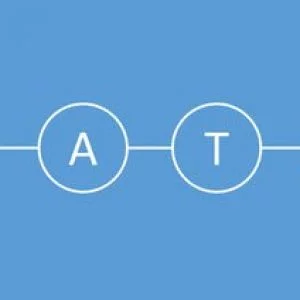
Approximation Algorithms Part II
Approximation algorithms, Part 2 This is the continuation of Approximation algorithms, Part 1. Here you will learn linear programming duality applied to the design of some approximation algorithms, and semidefinite programming applied to Maxcut. By taking the two parts of this course, you will be exposed to a range of problems at the foundations of theoretical computer science, and to powerful design and analysis techniques. Upon completion, you will be able to recognize, when faced with a new combinatorial optimization problem, whether it is close to one of a few known basic problems, and will be able to design linear programming relaxations and use randomized rounding to attempt to solve your own problem. The course content and in particular the homework is of a theoretical nature without any programming assignments. This is the second of a two–part course on Approximation Algorithms.
Instructor Details
Courses : 2
Specification: Approximation Algorithms Part II
|
9 reviews for Approximation Algorithms Part II
Add a review Cancel reply
This site uses Akismet to reduce spam. Learn how your comment data is processed.

| Provider | |
|---|---|
| Duration | 13 hours |
| Year | 2016 |
| Language | English |
| Certificate | Yes |
| Quizzes | Yes |






![The Design and Analysis of Algorithm Masterclass [ 2019 ]](https://courses.javacodegeeks.com/wp-content/uploads/2020/02/2484706_b943-300x300.jpg.webp)
Reynaldo G –
excellent!!
Refik A –
It is remarkable to note that Professor Claire Mathieu explains such a complex subject in such a elegant and understandable manner.
Claus D M P –
This course covers challenging technical topics and I appreciate that the effort that went into making it. That said I have serious concerns about the quality of execution for Part II of the course, which was much inferior to part I of the course. In general, the lectures themselves were up to the quality of part I and are well done. In many cases, the practice quizzes were less helpful. Including one sequence where each quiz extended the previous one but if you there was no way to learn from your errors, especially an error in the first quiz. For the peer graded assignments, there was one answer field for multiple questions, rather than one per question. Worse, the answers often required equations and LaTex math was not available. The only solution was to put the answers in a document on a cloud drive like Google Drive and paste a link in. Finally, for the peer review you could just mark questions correct or wrong with no way to provide private feedback on what was lacking in a response. Furthermore, doing the peer review was purely optional and the results were not actually scored. (Part 1 was similar, but it was possible to upload the document to Coursera directly and peer review was a required part of the course, resulting in a grade.) Either there are serious limitations with this iteration of the Coursera platform or the course authors did not understand how to properly implement this. Finally, in the session I took their was no active Teaching Assistance presence. There were no responses to student questions nor concerns that were raised about typos and possible errors in the quizzes and problem assignments. Either the course should not have been offered if no TA support was available or there should have been some notification in syllabus that this session would only have peer assistance with no support from the course staff.
Andrew P –
Demanding course with lots of great algorithm concepts based on Linear Programming.
Zhouningnan –
Learning Approximation algorithm by self is really hard. Fortunately this class is very easy to understand useful techniques such as primal dual linear programming and SDP. Thank you very much!
Paulo E d V –
Even better than the first! Very good classes (except for the two first of week 3 …)
Maxime J –
Excellente course, thank you for the excellent techniques and approach that often lacks in courses on the subject. I would have loved a validation at least. I’d be very happy to attend another of your class should you make a part 3 or another lecture.
victor g –
A very synthetic course on the topic.Explanations are of great quality and elegant! Every algorithms given are analysed on a mathematical point of view. ENS should enable people to get certificate for this course ! I would prefer give money to this top institution in theorical science than to the huge private universities To improve : the commitment of the staff to the forum
Deleted A –
I really appreciate your valuable knowledge sharing. This is a perfect course.